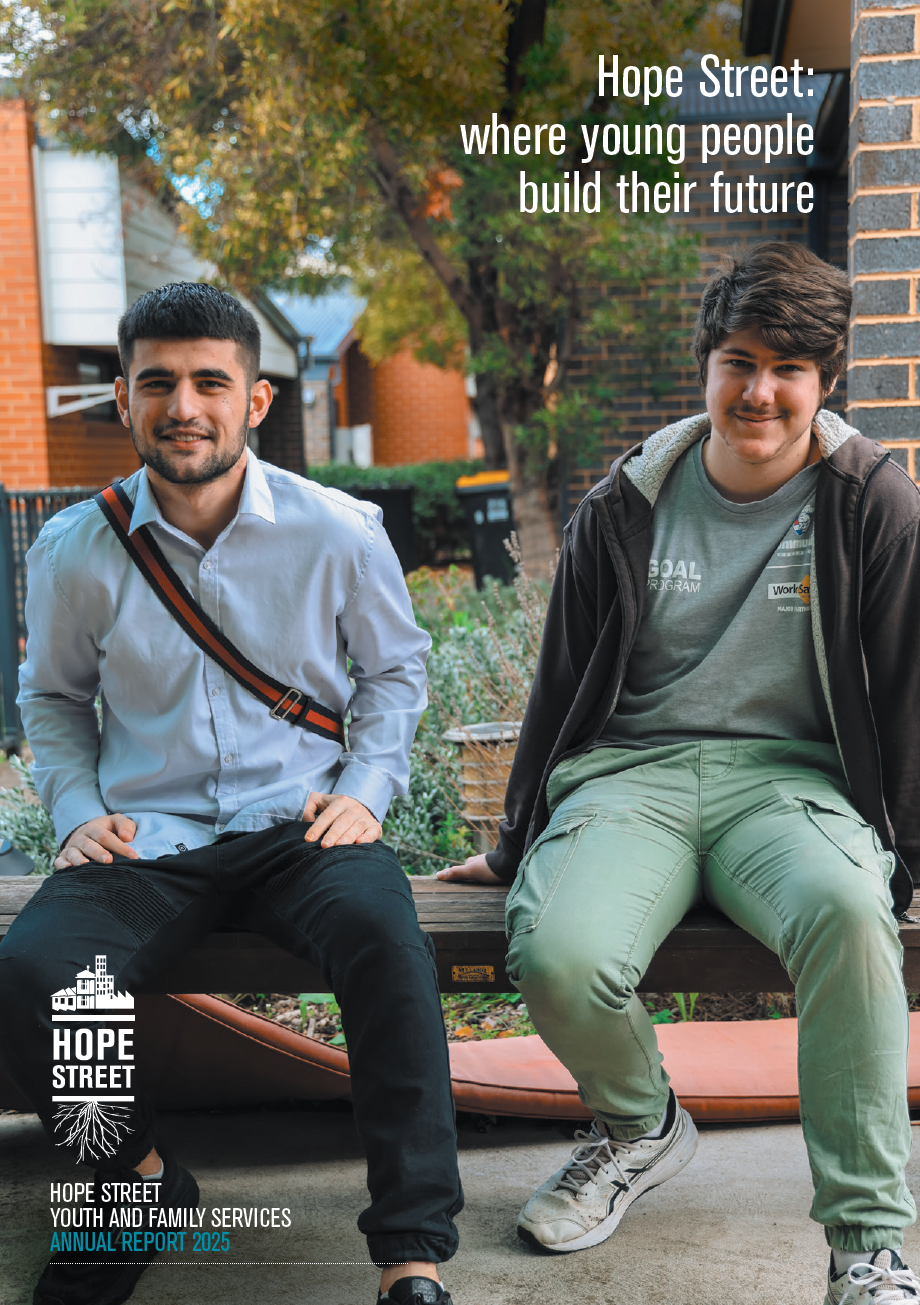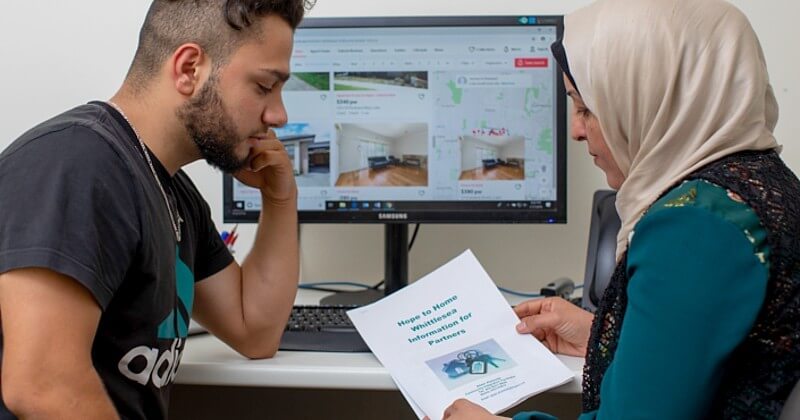The Hope to Home in Whittlesea pilot program aims to reduce the number of young people at risk of homelessness by addressing the barriers contributing to homelessness in the City of Whittlesea. This program engages the support of community stakeholders, including local businesses, to address those barriers with more open and inclusive access to existing community life resources such as housing, employment, education, and social and wellbeing programs.
Many young people face obstacles when trying to secure stable accommodation due to their lack of rental history, lack of affordability, lack of employment to sustain the lease, lack of stock – in particular one bedroom – and perceived discrimination (often young people tell us they feel like they are shut out because of their age: "not many people are willing to give us a go").
The program assists young people to:
- gain a place they can call home that is affordable, sustainable and long-term
- build their knowledge base to maintain employment, education and training, connection to family, friends and other healthy relationships in their local community
- develop valuable tenancy life skills and establish a tenancy history, enabling access to other tenancies in the future and reducing the probability of returning to the Homelessness Service System
What does the program offer?
- Rental subsidies and joint lease signatories to facilitate 30 young people and their children's transition into private rental accommodation (eg one-bedroom and two-bedroom units)
- Tailored training/employment opportunities from local business
- A range of workshops to help young people acquire life skills
- Case management support to promote capacity building and maximise outcomes for young people
Hope Street has partnered with Lord Mayor’s Charitable Foundation and Ray White Thomastown to implement this pilot program which is based upon our successful Hope to Home in Melton pilot program. Funding from a range of sources (brokerage, Hope Street funds, business partners and philanthropy) is used to provide subsidised rent over a period of of four months. Hope Street will remain a co-lessee on the rental contract for the first six months of the tenancy and provide ongoing case management for up to 12 months.
How can young people enter this program?
Young people must be:
- 18 - 25 years of age
- individuals or part of a couple / family (eg siblings, single parent and child, couple and child)
- currently in our Hope Street in Whittlesea program (internal client referrals only) or referral through housing services in Whittlesea
- linked to the Whittlesea local government area
- linked or willing to be linked to education, employment or training
- in receipt of an income that allows for independent living (purchase food, pay rent, travel, etc)
- able to perform a basic level of independent living skills in activities such as cooking, cleaning, shopping, self regulated routine
- willing and have the capacity to participate in the program
Hope to Home in Whittlesea is currently continuing thanks to funding from Hope Street and corporate partner ALH Group. Hope Street is working to secure ongoing recurrent funding of the Hope to Home in Melton program.
Please contact us for further information about the Hope to Home program.
PROGRAM OUTCOMES
Learn more about the young people supported, and our impact, from our latest Annual Report.
Download
Over a two-year period, Victoria University undertook a rigorous research evaluation of the Hope to Home model piloted in Melton and Whittlesea. An interim report was provided during the 2017-18 reporting period and a final report released in August 2018 at the Hope to Home Research Evaluation Report 2018 Launch.



